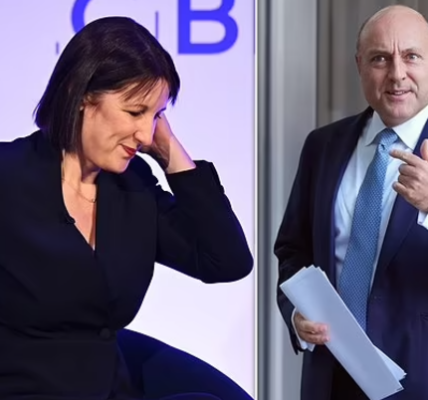JASON GROVES: Why Keir Starmer’s six ‘milestones’ could become millstones by the next election as voters turn on Labour_Nhy
When is a relaunch not a relaunch?
When it’s a Plan for Change, apparently – or at least that is what the Downing Street spin machine is insisting today.
It is no surprise that they want to avoid the R-word, even if that is exactly what today’s big production at Pinewood Studios represents. The history of relaunches by governing parties is not encouraging. They can, occasionally, persuade people to take a fresh look at the government, but only if they focus on the issues that are aggravating voters.
Labour appear to have decided that their popularity has slumped because the public do not understand what they are trying to do and how it relates to their lives. There is certainly some truth in that, and there is no harm in trying to put some flesh on the very meagre bones offered in the manifesto.
But it seems at least as likely that public disaffection with Labour is because voters do understand what the government is doing – and don’t like it.
Whether it is the raid on pensioners’ winter fuel payments, the Budget attack on family farms or the grasping entitlement shown by Sir Keir and other senior ministers accepting freebies, the new government has dropped several nasty surprises which have left even some Labour voters asking whether this is really the change they voted for. One poll today found the public think the new government is doing a bad job by a margin of 53:19.
In any case, today’s ‘plan for change’ has little to say on some of the biggest issues concerning the public.
Why no milestone target for immigration, for example, given the PM’s stated claim that the issue is among his top priorities? Could it be that ministers cannot identify any ‘deliverable’ progress that is worth shouting about?

Sir Keir Starmer unveils his ‘plan for change’ as he attempts to de-facto relaunch his government today

Deputy Prime Minister Angela Rayner gives a speech at Pinewood Studios in Buckinghamshire today

Health Secretary Wes Streeting speaks to the media at Pinewood Studios in Buckinghamshire today

Energy Secretary Ed Miliband smiles as he speaks to the media at the event, which comes after a turbulent five months in office for Labour
There is also a gaping hole on defence. Minister Al Carns warned this week that the British Army could be wiped out in as little as six months in the event of a major war. The PM continues to insist that his commitment to the defence of the nation is ‘ironclad’, but there is still no sign of him putting his money where his mouth is and sanctioning a meaningful increase in military spending.
On the central issue of the economy, the flagship pledge to deliver the fastest growth in the G7 has been downgraded to an ambition. In its place is a vague promise to raise real household disposable income – something that happened even in the last parliament, when living standards were hit by Covid and inflation.
The change is driven partly by the fact that many believe the G7 pledge to be unachievable, but also by the experience of the Democrats in the US. Joe Biden did achieve the fastest growth in the G7 but the Democrats failed to convince voters they were better off as a result.
There was some good fighting talk from Sir Keir on growth – a ‘gauntlet’ thrown down to the civil service on reform and delivery, a warning to Nimbys that they will ‘no longer have the upper hand’. We’ll see – as Liz Truss discovered, vested interests are not easy to overcome.
The PM also made some welcome concessions to reality. Ed Miliband’s crazed ‘Clean Power 2030’ pledge has been downgraded from 100 per cent carbon-free electricity to 95 per cent.
There was speculation today that Sir Keir’s new ‘milestones’ could become millstones by the next election. That is certainly true in the case of housing – where the target of 1.5 million new homes looks tough – and the climate, where even the watered-down target may only be hit at enormous cost to the economy. Others are so vague or straightforward that they are almost bound to be hit.
But the bigger danger for Labour is that Sir Keir’s jargon-packed speech and bewildering list of milestones, missions, first steps, ladders and foundational stones will simply be ignored by most voters.
Sir Keir took just five months to reach for his first relaunch. On this evidence, it will not be his last.


